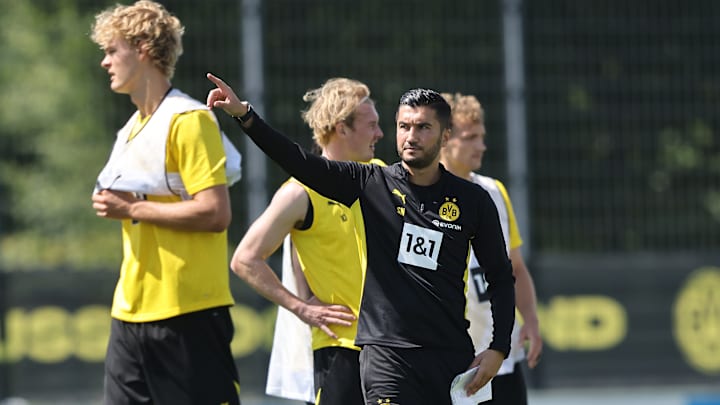While some of last summer’s signings proved to be needed additions to the Borussia Dortmund squad, not everyone reached the expectations that come with playing for the club. One of Edin Terzic’s most notable criticisms of his second summer in charge was his apparent power in making transfer decisions. Whether it was his insistence on promoting Emre Can to captain over pursuing a transfer for Edison Alveraz, or his wish to force the purchase of a striker near deadline day, many of us fans felt dissatisfied and, at times, confused. Something needed to change this time around.
Even before Terzic announced his resignation, the BVB hierarchy made it apparent the summer’s ‘rebuild,’ would be more deliberate and proactive. This began with the announcement that Marco Reus wouldn’t be receiving a new contract, and continued through the end of the season with Mats Hummels’ departure, along with that of squad players like Marius Wolf and Mateu Moray.
While it remains to be seen how successful Borussia Dortmund will be in the current window, I’d say ‘proactive,’ is exactly how Lars Ricken, Sebastian Kehl, and co. are acting. Yet the context this summer is different than previous summers. Borussia Dortmund are fresh off a Champions League final, which comes with international attention. Demonstrating the ability to reach a European final is a huge selling feature to prospective players. But BVB don't have the same windfall of cash as the last two years, nor do they have the same needs.
The transfer budget isn’t bolstered by a windfall
The money for transfers is determined by several factors, including performance-based bonuses, merchandising, and sponsorships, but the most obvious is always player sales. Two years ago, Manchester City triggered the release clause of Erling Haaland, and subsequently purchased Manual Akanji. Last summer, Jude Bellingham secured a transfer to Real Madrid for more than 100 million euros. When a high-profile player leaves for a huge sum, other European clubs notice.
Everyone knew Dortmund had a fresh war-chest of funds following Bellingham’s departure. Wolfsburg’s knowledge of BVB’s cash on hand allowed them to play hardball and force a high fee for Felix Nmecha. The money for transfers this summer is bolstered by substantial performance-based bonuses from the UEFA Champions League, and saved wages from departing players like Marco Reus and Mats Hummels. Big-name player sales are unlikely, although the futures of several first-team players are still uncertain.
